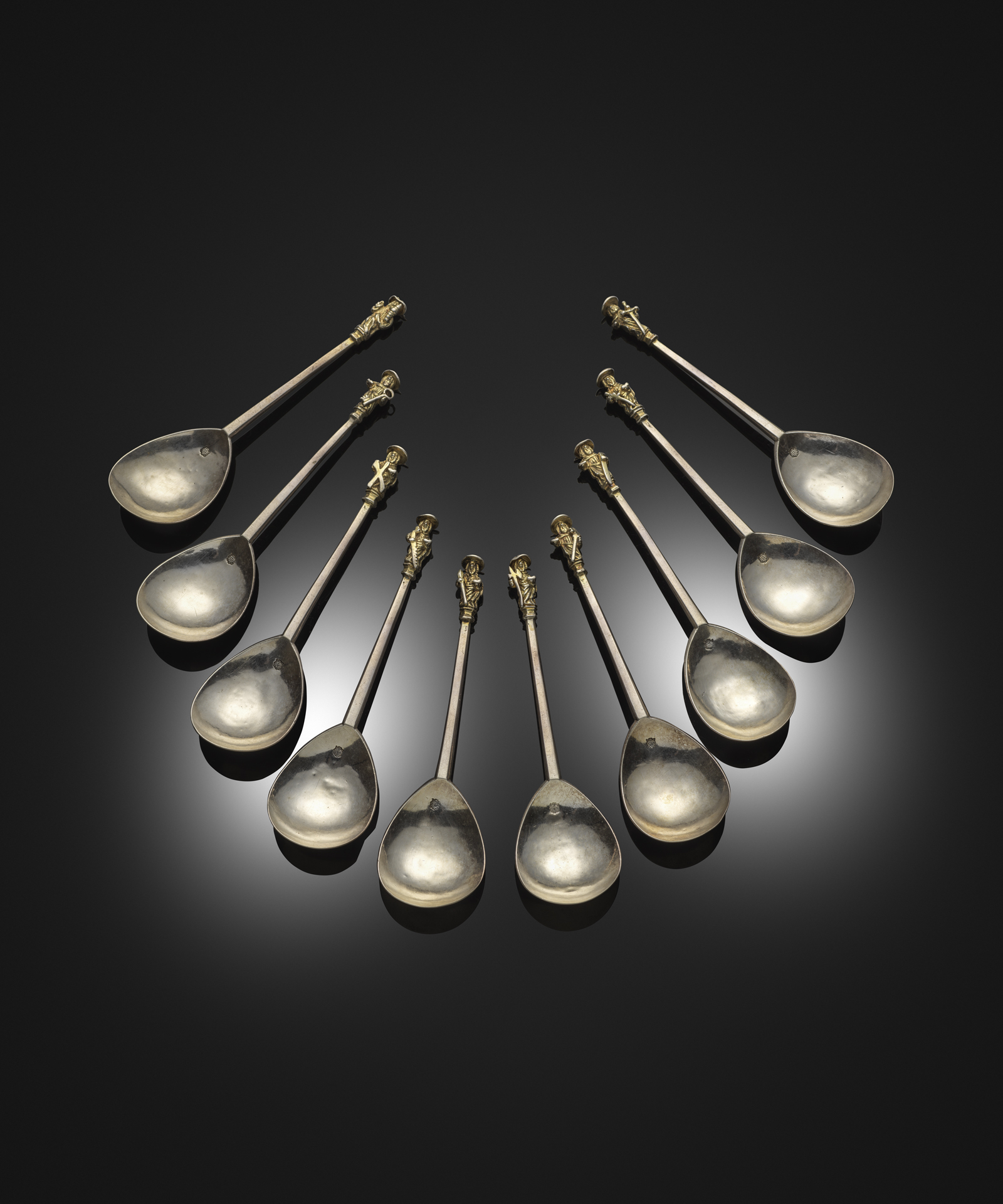Fine Silver & Objects of Vertu - 16th April 2019
Lot 510
THE MAMBURY SET OF APOSTLE SPOONS
Estimate £40,000 - £60,000 | Hammer £48000
+ Buyers Premium
Description

THE MAMBURY SET OF APOSTLE SPOONS,
A rare set of ten James I silver Apostle spoons,
by Daniel Cary, London 1607,
fig-shaped bowls, faceted tapering stems, gilded Apostle finials, each with a Holy Dove nimbus,
comprising:
St. John, length 18.1cm, approx. weight 1.8oz.
St. Peter, length 18.2cm, approx. weight 1.9oz.
St. Andrew, length 18.2cm, approx. weight 1.9oz.
St. Simon Zelotes, length 18.2cm, approx. weight 1.9oz.
St. Thomas, length 18.1cm, approx. weight 1.8oz.
St. Matthias, length 18.1cm, approx. weight 1.9oz.
St. Jude, length 18.1cm, approx. weight 2oz.
St. Bartholomew, length 18.2cm, approx. weight 1.8oz.
St. Philip, length 18.1cm, approx. weight 2oz.
St. Paul, length 18.1cm, approx. weight 1.8oz.
in a later fitted shagreen box, fitted to fit fourteen spoons, with a silver plaque, by G Betjemann and sons, London 1930 'The Mambury Set XII spoons with appostells at the endes, and one with Christ at the ende', and later inscribed 'and one with St. Paul'.
Provenance: A Private Collection.
The Cookson Collection.
For illustrations of the Apostles and a write up of this Documentary set see How, G., in collaboration with How J., English and Scottish Silver Spoons, Volume Two, page 10, Chapter III, Section II, pages 150-151, plate 51, Chapter III, Section I, pages 18-25, plates 4-7.
How Writes 'The Mambury Set of 1607, consisting of ten Apostles in very fine condition, is a most valuable document as it contains both St. Paul with the Long Sword and St. Philip with the Short Cross, not previously found together in a set. St. Jude with the Long Cross and St. Bartholomew with the Flaying Knife is also represented. The emblems of the missing figures are not in dispute as the figures omitted are The Master, St. James The Greater, St. James the Less and St. Matthew. One of these Apostles would in any case have been left out as St. Paul is present: it was probably St. Matthew, who seems to have been The Apostle most generally omitted.'